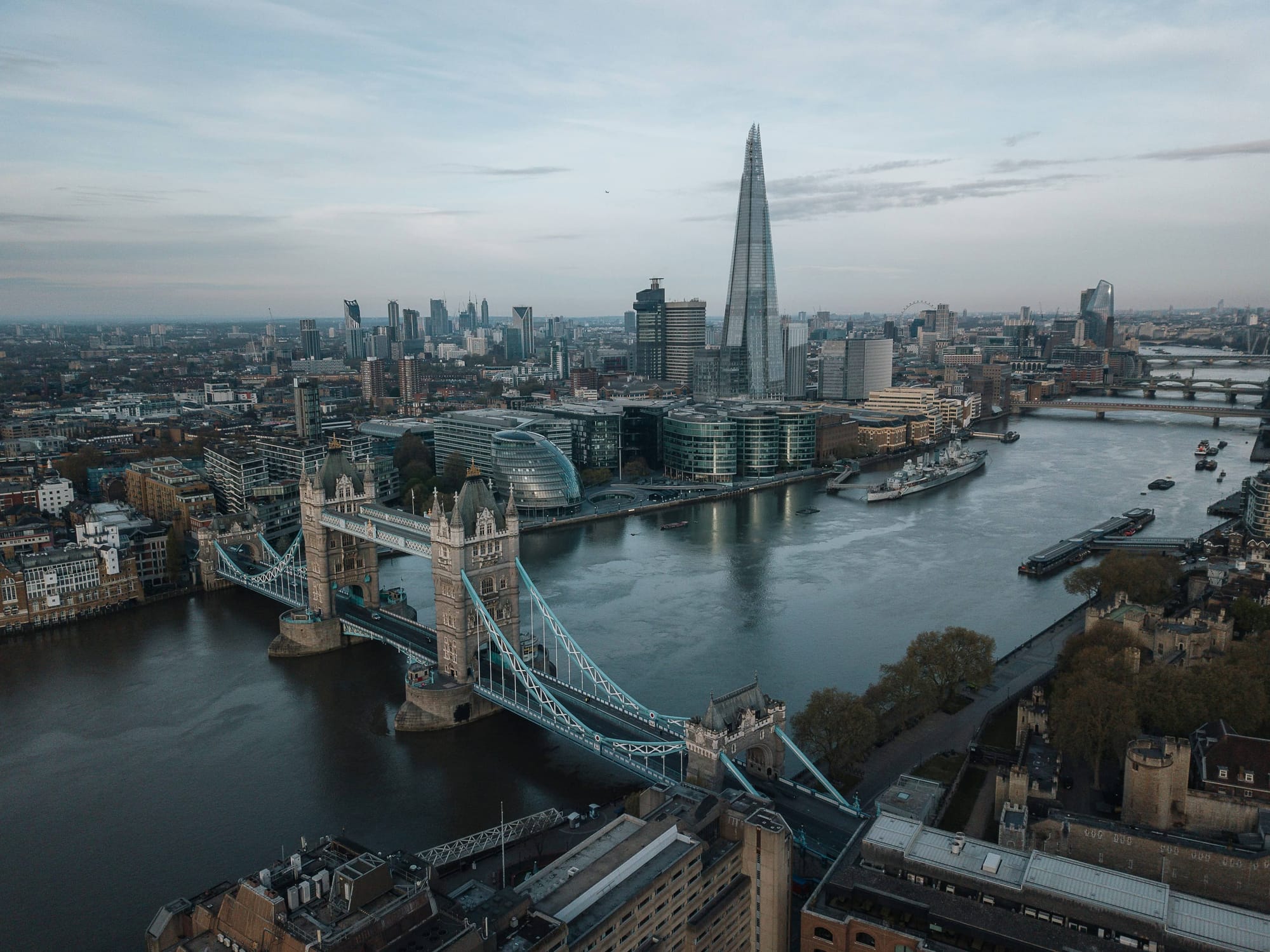Making the decision to give up your British citizenship is a significant life choice that requires careful consideration and understanding of the process.
People renounce citizenships for all kinds of reasons. At CitizenX, we believe that more passports and citizenships provide optionality—in other words, more is better! However, there may be political, tax, personal, or professional reasons why you may decide to formally renounce your citizenship in the United Kingdom.
Whether you're pursuing US citizenship, tax freedom, personal sovereignty, or seeking naturalization in another country that doesn't allow dual nationality, this comprehensive guide will walk you through the complexities of renouncing your British nationality.
The process often involves taking an oath of renunciation, (particularly when working with the US government for naturalization).
Why people choose to renounce their British citizenship
The journey of expatriation from the United Kingdom often begins with specific circumstances that make renunciation necessary.
Many individuals find themselves considering this option when pursuing citizenship in countries that don't recognize dual citizenship. For instance, Singapore, Japan, and several other nations require you to give up your existing citizenship before granting you their nationality.
The process, governed by the British Nationality Act 1981, provides a legal framework for those who need to make this important transition. This framework has evolved significantly since the days of the colonies, adapting to modern migration patterns and international relationships.

Understanding what happens when you renounce your British nationality
When you decide to give up your British citizenship, you'll receive a declaration of renunciation from the Home Office. This official document serves as proof that you're no longer a British citizen.
The process affects your immigration status in the UK immediately, and you'll need to plan accordingly, especially if you intend to continue living in or visiting the United Kingdom.
The UK government recognizes that circumstances can be complex, which is why the process includes safeguards to prevent individuals from becoming stateless.
You must either already hold citizenship of another country or be about to acquire one before you can proceed with renunciation.
This requirement stems from international obligations and the UK's commitment to preventing statelessness.
What you need to know before starting the process
Before beginning your renunciation journey, it's essential to understand that this decision affects more than just your passport status. Your right to live and work in the UK will change significantly.
If you're considering this step while living in London or anywhere else in the United Kingdom, you'll need to ensure you have appropriate visa arrangements in place.
The process involves working with various government bodies, including the Home Office and potentially the US embassy if you're pursuing US citizenship. You'll need to provide several documents, including your birth certificate, British passport, and evidence of your other citizenship or impending citizenship status.
How to begin the renunciation process
Starting the process requires careful preparation and attention to detail. You'll need to submit your application to the Secretary of State, either online or in person, depending on your circumstances. The process typically involves:
Your first step should be gathering all necessary documentation, including your certificate of naturalisation if you weren't born British.
The Home Office requires comprehensive evidence of your identity and current citizenship status. You'll also need to demonstrate you're of sound mind and understand the implications of your decision.
The application process itself involves submitting a formal declaration of renunciation. This can be done through the UK government's official channels, and you may need to seek legal advice to ensure everything is completed correctly. Immigration law can be complex, and mistakes in this process could have serious consequences.
Working with the Home Office during your application
The Home Office plays a central role in processing renunciation applications. They will review your documentation, including your British passport and any certificates of naturalisation or registration.
If you're applying from within the United Kingdom, you may need to attend an appointment in person. For those outside the UK, the process might involve working with a consular officer at a British embassy or consulate.
The review process includes verifying your eligibility and ensuring you won't become stateless. The UK government takes this responsibility seriously, as it's bound by international treaties to prevent statelessness. Your application will be carefully reviewed to ensure it meets all requirements under the British Nationality Act 1981.
Implications for those seeking US citizenship
If you're renouncing your British citizenship to become a US citizen, there are specific considerations to keep in mind. The US embassy can provide guidance on the process from the American perspective, and you'll need to coordinate with both US and UK authorities. The timing is crucial, as you'll need to manage the process of obtaining a certificate of loss of nationality while ensuring you don't become stateless.
US citizens going through this process should be aware of how it affects their participation in programs like the visa waiver program, which allows easier travel between the United States and the United Kingdom. Understanding these implications is crucial for future travel planning.
What you should know about UK immigration after renunciation
After renouncing your British citizenship, your relationship with UK immigration changes significantly. You'll need to navigate the UK visa system like any other foreign national. This might mean applying for specific visas for work, study, or family visits. The Home Office provides guidance on various visa categories available to former British citizens.
If you plan to maintain ties with the United Kingdom, you might want to consider applying for indefinite leave to remain before renouncing your citizenship. This can provide a more stable immigration status for those who wish to continue living in or frequently visiting the UK.
Options for British overseas territories and commonwealth countries
The process can be different for those holding British overseas territories citizenship or those from commonwealth countries. The nationality law provides specific provisions for these cases, and the requirements might vary. You'll need to work closely with the relevant authorities to understand how renunciation affects your specific status.
When you might need to seek legal advice
Given the complexity of nationality law and the significant implications of renunciation, seeking legal advice is often prudent. Immigration lawyers can provide valuable guidance on:
The timing of your renunciation in relation to acquiring new citizenship The implications for your ability to live and work in the UK The potential impact on any children or dependents Future travel arrangements and visa requirements
Understanding the costs and timeframes involved
The process involves various fees payable to the UK government, and timeframes can vary depending on your circumstances. The Home Office provides current fee information, but you should also consider potential additional costs such as legal advice, document translation, or travel expenses for in-person appointments.
How to maintain your connection with the United Kingdom
Even after renouncing your British citizenship, you may want to maintain ties with the UK. The UK immigration system offers various visa options for former citizens, and understanding these can help you plan for future visits or extended stays. Whether for business, family, or personal reasons, maintaining your connection with the UK requires careful planning and understanding of the available immigration routes.
Considering the path back to British citizenship
While it's possible to regain British citizenship after renunciation, the process is not automatic and comes with specific requirements. Understanding these requirements before renouncing can help you make a more informed decision about your citizenship status.
The British Nationality Act 1981 provides pathways for resumption of citizenship, but these are limited and may not be available in all circumstances. It's important to consider this carefully before proceeding with renunciation.
Final thoughts on making your decision
Renouncing British citizenship is a significant decision that requires careful consideration of both immediate and long-term implications. While the process itself is straightforward, the consequences are far-reaching and permanent.
Take time to understand all aspects of the process, seek appropriate legal advice, and carefully consider your future needs before proceeding with this important step.
If you need help obtaining a second or third citizenship, CitizenX can point you in the right direction. We are always available for a conversation.




